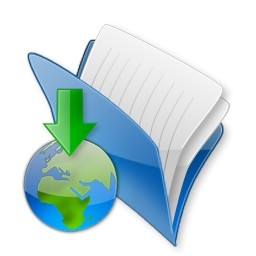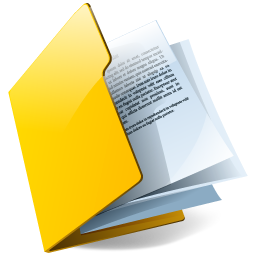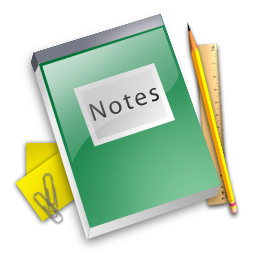Social Science
CBSE class 8 Social Science syllabus, question papers, online tests and important questions as per CBSE syllabus. Notes, test papers and school exam question papers with solutions. Main topics are History (How When and Where, From Trade to Territory The Company Establishes Power, Ruling the Countryside, Tribals Dikus and the Vision of a Golden Age, When People Rebel 857 and After, Colonialism and the City, Weavers, Iron Smelters and Factory Owners, Civilising the Native Educating the Nation, Women Caste and Reform, The Changing World of Visual Arts, The Making of the National Movement 1870 to 1947, India After Independence) Geography (Resources, Land Soil Water Natural Vegetation and Wildlife Resources, Mineral and Power Resources, Agriculture, Industries, Human Resources) and Civics (The Indian Constitution, Understanding Secularism, Why do we need a Parliament?, Understanding Laws, Judiciary, Understanding Our Criminal Justice System, Understanding Marginalisation, Confronting Marginalisation, Public Facilities, Law and Social Justice).

CBSE, JEE, NEET, CUET
Question Bank, Mock Tests, Exam Papers
NCERT Solutions, Sample Papers, Notes, Videos

myCBSEguide App
Complete Guide for CBSE Students
NCERT Solutions, NCERT Exemplars, Revison Notes, Free Videos, CBSE Papers, MCQ Tests & more.
CBSE class 8 Social Science syllabus, question papers, online tests and important questions as per CBSE syllabus. Notes, test papers and school exam question papers with solutions. Main topics are History (How When and Where, From Trade to Territory The Company Establishes Power, Ruling the Countryside, Tribals Dikus and the Vision of a Golden Age, When People Rebel 857 and After, Colonialism and the City, Weavers, Iron Smelters and Factory Owners, Civilising the Native Educating the Nation, Women Caste and Reform, The Changing World of Visual Arts, The Making of the National Movement 1870 to 1947, India After Independence) Geography (Resources, Land Soil Water Natural Vegetation and Wildlife Resources, Mineral and Power Resources, Agriculture, Industries, Human Resources) and Civics (The Indian Constitution, Understanding Secularism, Why do we need a Parliament?, Understanding Laws, Judiciary, Understanding Our Criminal Justice System, Understanding Marginalisation, Confronting Marginalisation, Public Facilities, Law and Social Justice).
Where, When, How
(a) An overview of the period.
(b) Introduction to the new geographical categories.
(c) An outline of the time frame.
(d) An introduction to the sources.
The Establishment of Company Power
(a) Mercantilism and trade-wars.
(b) Struggle for territory, wars with Indian rulers.
(c) The growth of colonial army and civilian administration.
Regional focus: Tamil Nadu.
Rural Life and Society
(a) Colonial agrarian policies; their effect on peasants and landlords.
(b) Growth of commercial crops.
(c) Peasant revolts: focus on indigo rebellions. Regional focus: Bengal and Bihar. Some comparison with later developments in Punjab.
Colonialism and Tribal Societies
(a) Changes within tribal economies and societies in the nineteenth century.
(b) Tribal revolts: focus on Birsa Munda.
Regional focus: Chotanagpur and North-East.
Crafts and Industries
(a) Decline of handicrafts in the nineteenth century.
(b) Brief reference to growth of industries in the twentieth century.
Case-studies: textiles.
The Revolt of 1857-58
(a) The rebellion in the army and the spread of the movement.
(b) The nature of elite and peasant participation. Regional focus: Awadh.
Education and British rule
(a) The new education system – schools, syllabi, colleges, universities, technical training.
(b) Changes in the indigenous systems.
(c) Growth of ‘National education’. Case-studies: Baroda, Aligarh.
Women and reform
(a) Debates around sati, widow remarriage, child marriage and age of consent.
(b) Ideas of different reformers on the position of women and women’s education. Regional focus: Maharashtra and Bengal.
Challenging the Caste System
(a) Arguments for caste reform. The ideas of Phule, Veerasalingam, Sri Narayana Guru, Periyar, Gandhi, Ambedkar.
(b) Consequences and implications of the activities of the reformers.
Region: Maharashtra, Andhra.
Colonialism and Urban Change
(a) De-urbanisation and emergence of new towns.
(b) Implications of colonial policies and institutions – municipalities, public works, planning, railway links, police.
Case-study: Delhi.
Changes in the Arts: Painting, Literature, architecture
(a) Impact of new technologies and institutions: art schools, printing press.
(b) Western academic style and nationalist art.
(c) Changes in performing arts – music and dance enter the public arena.
(d) New forms of writing.
(e) New architecture. Case-studies: Mumbai, Chennai.
The Nationalist Movement
(a) Overview of the nationalist movement from the 1870s to the 1940s.
(b) Diverse trends within the movement and different social groups involved.
(c) Links with constitutional changes.
Case study: Khilafat to Non Cooperation.
India after Independence
(a) National and regional developments since 1947.
(b) Relations with other countries.
(c) Looking to the future.
Resources: resources and their types – natural and human.
Natural resources: their distribution, utilisation and conservation, land and soil, water, natural vegetation, wildlife, mineral and power resources (world patterns with special reference to India).
Agriculture: types of farming, major crops, food crops, fibres, beverages, agricultural development – two case studies – one from India and the other from a developed country/a farm in the US/ Netherlands/ Australia
Industries: classification of industries based on size, raw material, ownership; major industries and distribution; infrastructure and development. Iron and Steel (a comparative study of Jamshedpur and a centre in USA e.g., Detroit). Textile Industry (Ahmedabad and Osaka). Information Technology (Bangalore and Silicon Valley).
Human Resources: composition, population change, distribution and density.

myCBSEguide
Trusted by 1 Crore+ Students

Test Generator
Create papers online. It's FREE.

CUET Mock Tests
75,000+ questions to practice only on myCBSEguide app
 myCBSEguide
myCBSEguide





